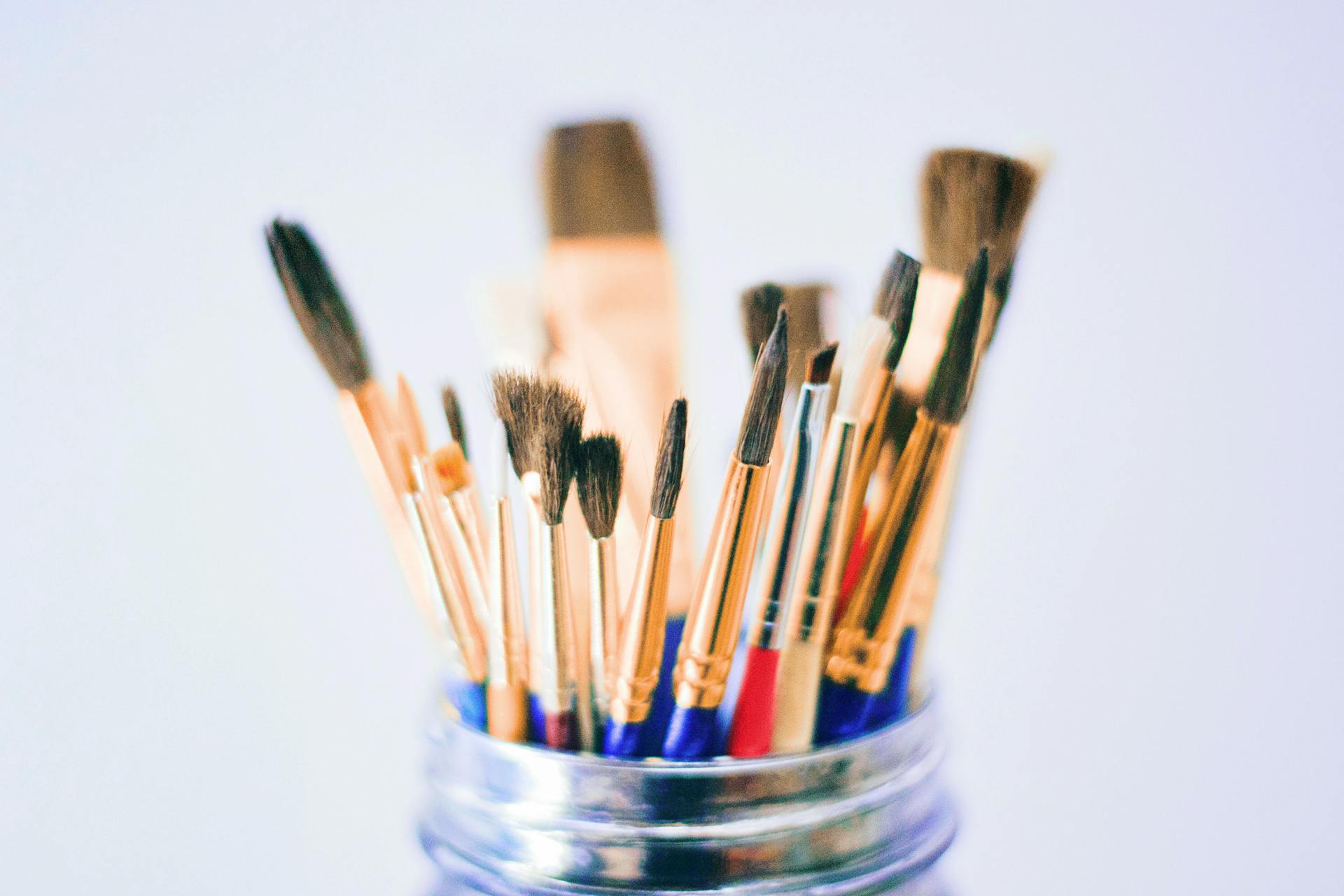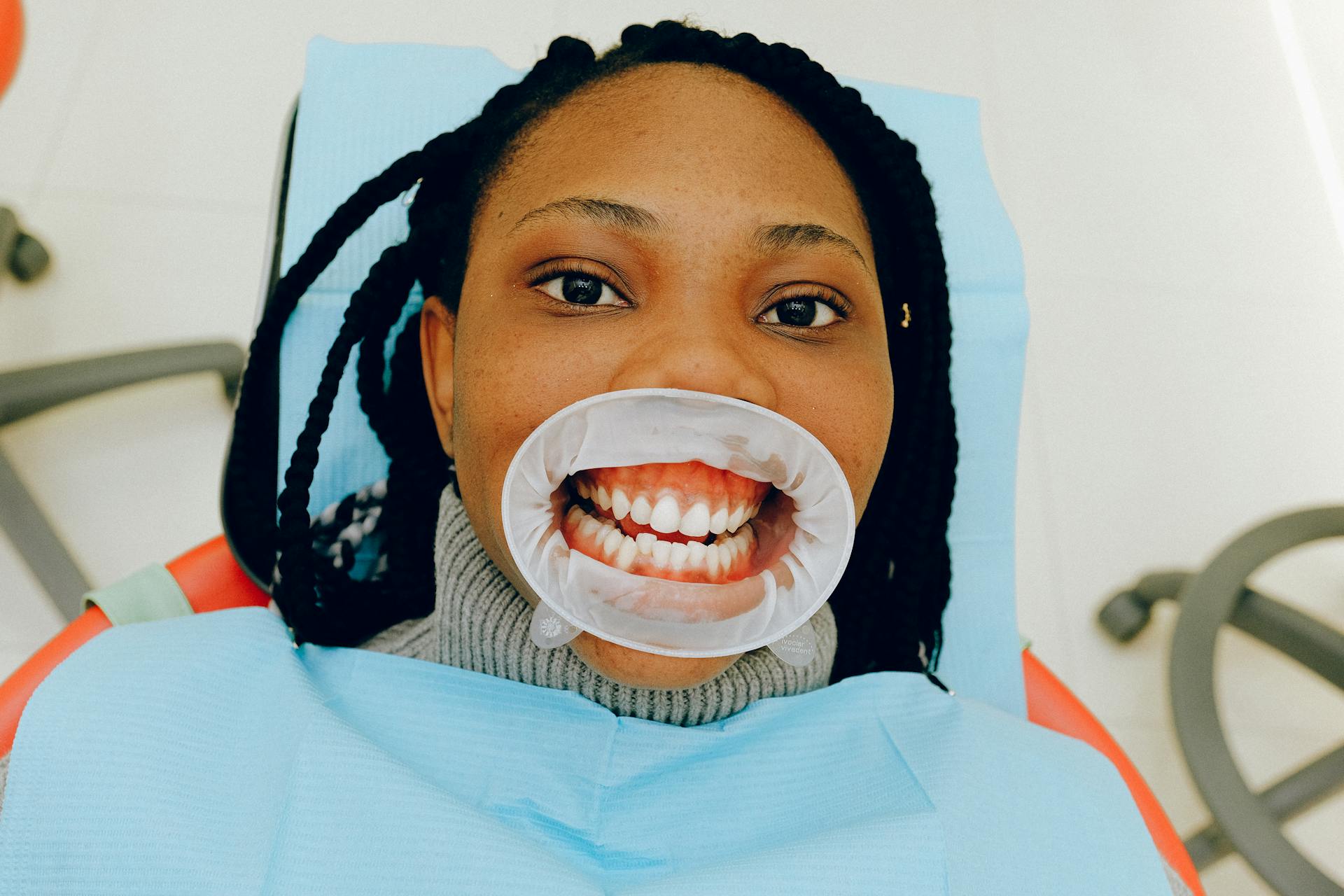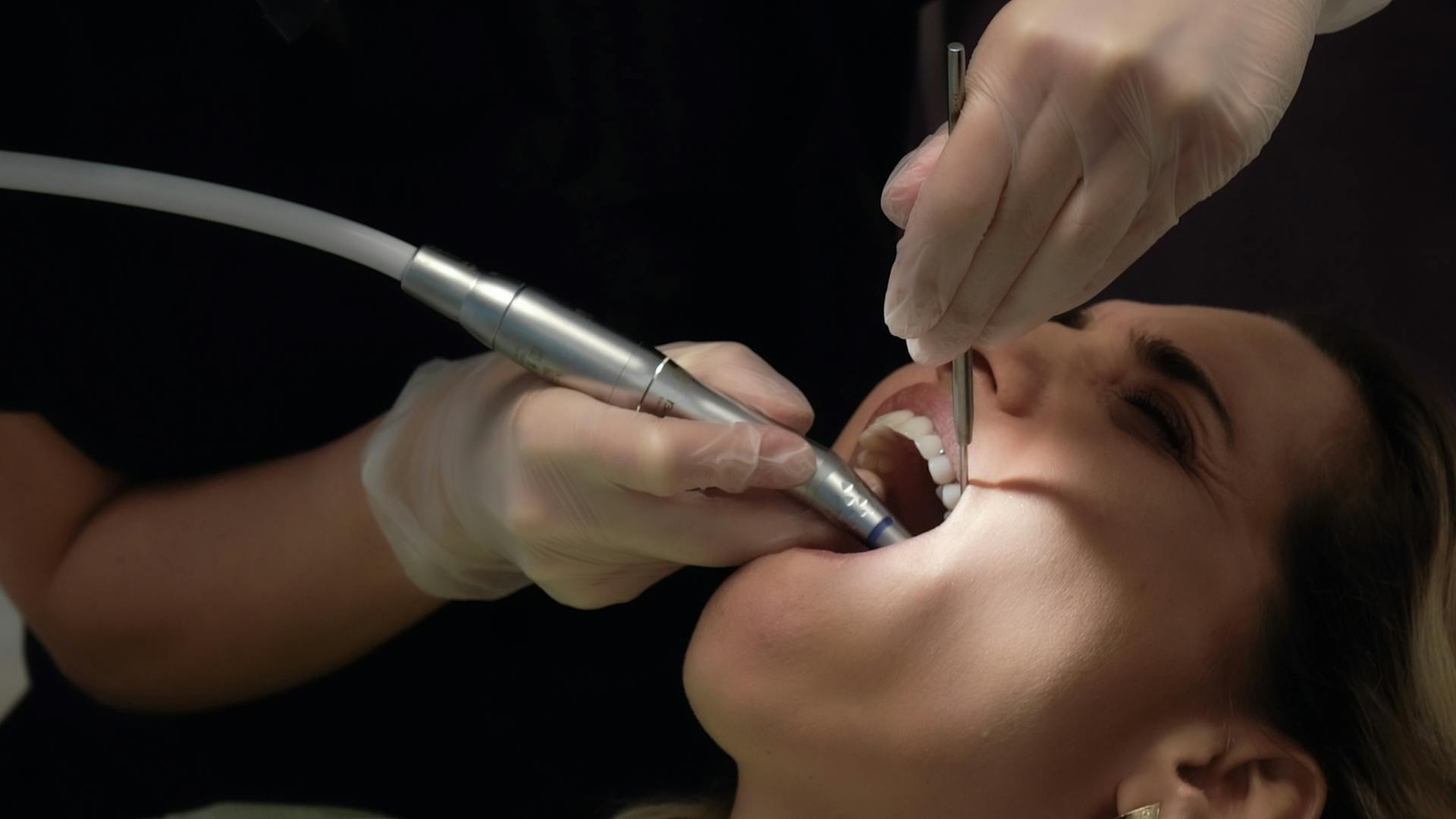
Gum pain has a lot of causes, but the most common is inflammation due to gum disease. When your gums become inflamed, brushing your teeth can cause them to become irritated and inflamed even further, resulting in a sharp pain or stinging sensation. This is why it’s important to keep up a good oral health routine: brushing your teeth twice a day and flossing once a day will help maintain healthy gums and teeth.
There are other reasons why your gums might hurt when you brush your teeth. For example, it could be due to gum recession – when the gum pulls away from the tooth surface, exposing more of the tooth's root. This can cause sensitivity and pain. And if you’ve recently changed your toothbrush, it could be that the bristles are too hard and stiff which can irritate your gums as well as wear away at them more quickly.
Another thing to consider if you experience tenderness or soreness while brushing your teeth is toothpaste sensitivity. Some toothpastes contain ingredients that cause irritation in some people’s mouths such as sodium lauryl sulfate (SLS) which is an ingredient used in some famous products that can lead to gum discomfort—particularly when combined with brushing too vigorously or using too much pressure on delicate areas of the mouth. If this is you try using an SLS-free toothpaste or even one that focuses on reducing sensitivity specifically!
Lastly, it’s always a good idea to talk to your dentist if you experience gum discomfort when brushing because they may be able to identify underlying problems with your dental health that need addressing such as gingivitis—which typically causes redness and bleeding in the mouth—or periodontal disease which needs treating as soon as possible.
In conclusion, while there can be many causes as to why your gums hurt when brushing it’s really important you consult with a dentist and also be mindful of how often and with what type of pressure you use for cleansing tools such as toothbrushes and floss each time you clean of mouth!
Intriguing read: Dentist Numb
Why is my mouth sensitive when I floss?
Flossing is a vital part of oral hygiene, yet for many people flossing can be incredibly uncomfortable. The sensitivity may cause some to skip flossing or avoid it altogether. To understand the source of this discomfort, it helps to review the anatomy of the mouth.
When flossing, the thin string runs between the tightly closed teeth, and along both sides of each tooth. This causes friction on the gums tissue and inflames them, particularly in those cases where gum disease is present or pockets have been created between teeth and gums due to periodontal disease or gum recession. This inflammation increases sensitivity and makes it even more sensitive when pressing with a piece of floss.
Another possible source of pain while flossing comes from fibrous tissues that surround our teeth. These tissues contain lots of nerves that transmit pain when touched. Flossing in this area may cause pain due to insufficient cleaning leading to tartar accumulation, as well as direct pressure on nerve endings located below each tooth root. Furthermore, applying too much pressure when flossing can damage these nerves and result in intense sensitivity when brushing and even cold meals such as ice cream.
The good news is that for most people gentle cleaning with floss is more than enough to feel comfortable and gain all benefits regular flossing provides! When done correctly, not only does it reduce discomfort but also works effectively against tartar accumulation and gum diseases such as gingivitis since it removes hidden plaque between teeth which would otherwise lead to oral health problems over time if left uncleaned regularly with a piece of dental floss.
A unique perspective: Flossing Whiten Teeth
Why is it so painful to use mouthwash?
Mouthwash provides an important level of oral health care, killing harmful bacteria and reducing plaque. But have you ever stopped to consider why it can often be so painful to use?
The answer lies within in the ingredients common to most store-bought mouthwashes. Most of these products contain high concentrations of ethanol, which has a severe burning sensation when it comes into contact with open sores or cuts within the mouth. This is particularly true for those who enjoy salty or spicy foods that can make the lining of the tongue and mouth sore. Additionally, alcohol-based mouthwashes tend to dry out the area around them, creating a stinging sensation.
Fortunately, there are gentler alternatives that offer similar antibacterial benefits without harsh alcohol components. For instance, hydrogen peroxide rinses are popular among dentists and can help remove bad breath without irritating the sensitive areas of your mouth. Natural ingredients such as sage and clove provide anti-inflammatory benefits which can help sooth soreness caused by sensitive teeth or gums.
Ultimately, mouthwash is an important part of oral hygiene, but there’s no need to suffer with its harsh properties if you don’t have to. Consider alternative products or dilute your current solution with water to reduce stinging if you’re experiencing too much discomfort when using it.
Why does my tongue feel like it's burning after I use toothpaste?
Most people have experienced that familiar burning sensation on their tongue after brushing with toothpaste; it can be uncomfortable, and even unnerving. While it might be tempting to think it's an allergic reaction, the truth is usually much less alarming.
The most common cause of a burning tongue from toothpaste is simply its ingredients. Most toothpastes contain high levels of sodium fluoride, which can cause temporary soreness or burning if you swallow the paste. Some people are naturally more sensitive to fluoride, so this could be why your tongue is burning more than others’. Additionally, if you’re trying a new toothpaste to one you’re used to, the unfamiliar formula might sting as well.
Apart from ingredients in your toothpaste, bacteria buildup on your tongue can also make you sensitive, especially when exposed to the tartar-fighting and teeth-whitening agents in your paste. Brushing too vigorously can also irritate and inflame your taste buds too.
Fortunately, in most cases the tingling sensation won't last more than a few minutes after brushing and should subside rapidly if you rinse with a glass of water or milk; Dairy products like milk act as neutralizers for acidic substances like most toothpastes making them less caustic when it comes in contact with your taste buds or sensitive tissue on other areas of your mouth and throat. Make sure not to over brush either; stick to two minutes and keep pressure light for best results - your tongue will thank you!
If this caught your attention, see: Hate Brushing
Why do my teeth feel looser when I brush my teeth?
It's not uncommon for people to feel like brushing their teeth makes their teeth feel loose. In fact, it's a very common problem that many people experience. The answer to why your teeth may feel looser when you brush them can be complicated and varies from person to person.
Most commonly, people may feel the looser sensation because of gum recession; as the gums recede, the roots of the teeth become more exposed and make them feel looser than normal. This is particularly common in adults who have experienced gum disease as well as those who use aggressive or overly forceful brushing techniques.
It is possible that tooth movement can also occur when brushing, but this should typically resolve itself once you finish your routine if it's due to gentle pressure while brushing or using a whitening paste. If you believe your tooth movement is more severe or prolonged, it’s best to have a dental professional evaluate your oral health to see if there are any underlying factors causing the issue.
Proper dental hygiene is an important part of maintaining healthy teeth and gums. Make sure you visit your dentist regularly for check-ups and cleanings, brush gently but thoroughly twice daily, floss daily and maintain a healthy diet low in sugary foods and drinks for complete oral care!
If this caught your attention, see: Tooth Fairy
Sources
- https://deltadentalks.com/knowledge/3-reasons-your-mouthwash-burns
- https://www.colgate.com/en-us/oral-health/gum-disease/gum-irritation-four-self-induced-causes
- https://www.healthline.com/health/loose-tooth
- https://health.clevelandclinic.org/is-it-bad-if-my-gums-bleed-when-i-floss/
- https://www.newmouth.com/blog/why-does-mouthwash-burn/
- https://www.glaciercreekdental.com/why-do-my-gums-hurt-when-i-brush-my-teeth-causes-and-solutions/
- https://www.gilaridgedental.com/why-do-my-gums-hurt-when-i-brush-my-teeth/
- https://www.americandentalgroup.org/blog/why-your-gums-bleed-when-flossing-and-how-to-stop-it/
- https://www.newmouth.com/blog/why-teeth-feel-loose/
- https://www.healthline.com/health/why-do-my-gums-hurt
- https://www.colgate.com/en-us/oral-health/mouth-sores-and-infections/medications-burning-mouth
- https://www.healthdedicate.com/gums-hurt-when-brushing-teeth/
- https://www.healthline.com/health/burning-mouth-syndrome
- https://www.healthline.com/health/dental-and-oral-health/is-mouthwash-bad-for-you
Featured Images: pexels.com


